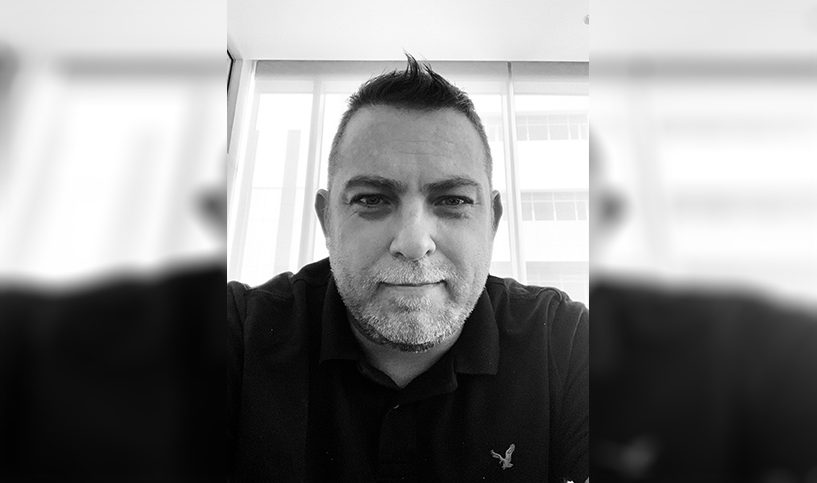By Meryl Mathew
Mental Health is often an unspoken issue and most of us usually silently suffer with a problem or visit a therapist in secrecy. Although there are quite a few therapists and doctors in Kuwait who can help, we still choose to ignore a problem we may have due to the social stigma that lies with a mental health issue.
Jason Sullivan, a mental health expert and therapist from Orlando, USA living in Kuwait for the last 10 years is indeed someone who has tried to bridge this gap through his podcast Quiet Chaos where he discusses some of the most common mental health issues such as depression, anxiety and relationship problems. A conversation with Jason shed a light on this topic that is often greatly misunderstood across the globe.
How did you begin your career in mental health therapy?
I was raised in a violent home and a family that was involved with a lot of addiction, that is a part of the reason I pursued this. I wanted to help kids who were in the same position because I knew what it was like not to have a voice.
I began my career by pursuing philosophy for my undergrad’s and at the time I started looking into mental health therapy. I realized that it really did fit well with me because in a lot of ways mental health came out from philosophy. If you go back to Sigmund Freud or Carl Jung, they also did draw from Friedrich Nietzsche and other philosophers before their time.
So I began my career in mental health by working with children who had been taken from their homes due to various reasons. Shortly after that I went for my master’s degree in counseling.
After my masters I began with private practice that involved a lot of anxiety and depression cases. Following to a period of such cases I realized I wanted to do something more. That was when I started working with the National organization for victim assistance and the Florida crisis response team which taught me how people function in crisis and how you can and cannot help them. So, you can say a few different things pulled me into this field.
Tell us about your podcast Quiet Chaos?
I wanted to understand the needs of Kuwait and be culturally sensitive at the same time before I got involved with the mental health needs of the country. Once I had a fair understanding and was comfortable with the culture, only did I begin to practice in Kuwait. What I have learnt over the years was that there is a big conversation that no one likes to have. It’s interesting because when you tell someone they have a physical problem, its mostly not taken with that much of a shock and people usually don’t have a problem taking medication for that. Often it is the lack of information regarding mental health issues in the form of an easy conversation that makes it difficult for people to understand it. This is the gap that I hope to fill with my podcast.
What are you hoping to achieve from the podcast?
In its essence I want the podcast to be an encouragement rather than just advice. I have tried to put enough information for people to help them but what I have seen is that people who struggle with even common disorders just feel alone. So, what I wanted with the podcast was to be a voice that they can relate to.
Overall a podcast is one piece of a bigger picture. I do have the website which is an online resource center. I also have a book coming out in May of 2020 called the Quiet chaos-The link between anxiety and awareness, where I have tried to bring in a different approach by being honest and transparent. Hence the podcast along with the website and the book together is what I hope can be a fall back for anyone suffering.
Do you think that mental health awareness is much needed in Kuwait?
I think it’s needed all over the world. There is a lot of gray areas about mental health. When we think of even the most common issues, they are misunderstood as well. There is in fact a lot of denial going on, due to the social stigma and mainly due to this internal fear of how people will see them.
Hence, I usually try to normalize the conversation and talk about the issue related with their mind just like any other organ, which I have noticed does really help with the stigma.
So, what I usually do when I’m meeting with someone, is explain to them that not every disorder needs medication and that often there are simple things that can help cope with the disorder.
Another way to help is to use creative arts such as creative writing, visual arts and music as a tool. Although it doesn’t necessarily mean that everyone must fit into this, but 30 years of research suggest that it can be one of the solutions.
Do you think each one of us has a mental health issue that we are unknowingly suffering from?
I think it’s possible. People don’t change because they have a good day, we usually change through suffering. It’s not a positive thought but none the less this is where most change happens. We all go through periods of our lives where we don’t have the basic core needs met, this is when small mental issues could occur. Often what most of us struggle with is the question of if we have a purpose and swaying back and forth on this spectrum is when the conversation needs to be had.
Even us therapists, although we are good at hiding and keeping our emotions locked we also have those moments where it could come to the surface.
Reach out to Jason for a counselling session through the Kuwait Counselling Center or through Instagram @quietchaoskw and his website quietchaoskw.com to listen to his podcast and find more information on mental health issues. Meryl Mathew is a Logistician by profession, a writer by passion and involves herself in a lot of multi-cultural events across Kuwait. You can find her on Instagram @Meryl_elizebeth_mathew or @create.kuwait.











